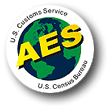 Norman Augustine
Norman Augustine
Chair, Deemed Export
Advisory Committee
The Deemed Export Advisory Committee released today its report to BIS on BIS’s deemed export rules. The deemed export rules, among other things, require licenses prior to release of technology on a dual-use item to a national of a country if an a license would be required for the export of the particular dual-use item to the country in question.
The report is lengthy and I haven’t had time to review it fully, but an idea of the report’s contents can be gleaned from its epigraph:
If you guard your toothbrushes and diamonds with equal zeal, you’ll probably lose fewer toothbrushes and more diamonds.
— McGeorge Bundy
The diamonds apparently represent dual-use items and the toothbrushes represent the technical data regarding those items. So, not surprisingly, the report recommends loosening the deemed export rules in certain respects. Principally, the report recommends the creation of a “Trusted Entity” category. Trusted Entities would be companies and universities that meet certain criteria and that would therefore not be required to obtain individual export licenses to transfer dual use technologies to foreign nationals. Such foreign nationals would be required, however, to sign non-disclosure agreements.
But in another respect, the report recommends tightening deemed export rules when it wades into the tricky territory of permanent residents, dual nationals and individuals who have resided in multiple countries. Under current rules, the BIS looks at an individual’s current citizenship and/or legal permanent residence. The report recommends expanding the inquiry:
[We recommend] expanding the determination of the national affiliation of potential licensees to include consideration of country of birth, prior countries of residence, and current citizenship, as well as the character of a person’s prior and present activities, to provide a more comprehensive assessment of probable loyalties.
The report’s explication of this recommendation contains this example:
It would seem that inadequate distinction is made between an individual who, say, was born and raised in Iran but only recently became a citizen of the UK and an individual who was born in Iran but moved to the UK and became a citizen of the latter nation shortly after birth. Additionally, it would seem to be important to consider where that individual resided during his or her entire lifetime – not just where he or she was born or where his or her current citizenship has been granted. It is noteworthy that the current BIS interpretation is that the Deemed Export rule does not apply to persons lawfully admitted for permanent residence (i.e., green card holders), wherever their prior residences may have been.
(emphasis in original)
This analysis is sensible, but it also carefully finesses a significant problem. It is not clear whether the report is recommending that a foreign national admitted to lawful permanent residence in the U.S. should continue to be treated as a U.S. citizen for purposes of deemed exports or whether the rules should be revised to treat a U.S. permanent resident like any other foreign national and potentially subject to disqualification from deemed exports based on country of birth or country of former residence.
 The Bureau of Industry and Security (“BIS”) announced late this afternoon that starting April 28, 2008, an Export Control Classification Number (ECCN) would be required by the Automated Export System when exporters sought to export items under license exceptions TSR, RPL, GOV, GFT, TSU, BAG, AVS, APR, KMI, TAPS and ENC. Currently, the ECCN is required by the AES entry form only for exports under exceptions LVS, GBS, CIV, AGR, and APP.
The Bureau of Industry and Security (“BIS”) announced late this afternoon that starting April 28, 2008, an Export Control Classification Number (ECCN) would be required by the Automated Export System when exporters sought to export items under license exceptions TSR, RPL, GOV, GFT, TSU, BAG, AVS, APR, KMI, TAPS and ENC. Currently, the ECCN is required by the AES entry form only for exports under exceptions LVS, GBS, CIV, AGR, and APP.
 Posted by
Posted by  Category:
Category: 

 The Validated End User program of the Bureau of Industry and Security (“BIS”) has experienced a fox-in-the-henhouse moment and may come crashing to a screeching halt. Apparently two of the five companies first awarded Validated End User status have ties to the Chinese military, prompting an inquiry by one U.S. lawmaker as to how this might have occurred.
The Validated End User program of the Bureau of Industry and Security (“BIS”) has experienced a fox-in-the-henhouse moment and may come crashing to a screeching halt. Apparently two of the five companies first awarded Validated End User status have ties to the Chinese military, prompting an inquiry by one U.S. lawmaker as to how this might have occurred. The Bureau of Industry and Security (“BIS”) released, on January 23, a
The Bureau of Industry and Security (“BIS”) released, on January 23, a  Back in November, Pennsylvania-based Colorcon, a manufacturer of specialty chemicals for the food and pharmaceutical industries, agreed to pay $39,000 to the Bureau of Industry and Security, based on alleged violations of BIS’s anti-boycott regulations. According to the
Back in November, Pennsylvania-based Colorcon, a manufacturer of specialty chemicals for the food and pharmaceutical industries, agreed to pay $39,000 to the Bureau of Industry and Security, based on alleged violations of BIS’s anti-boycott regulations. According to the 


